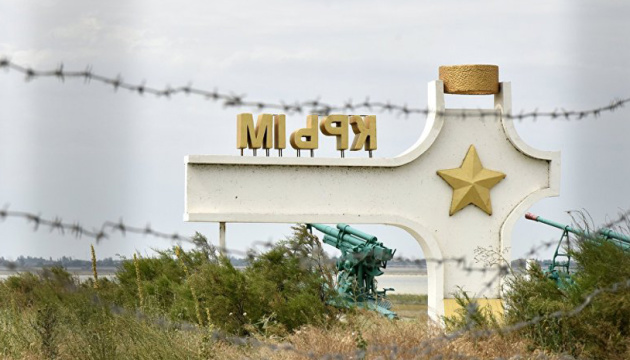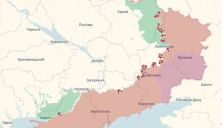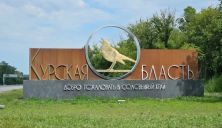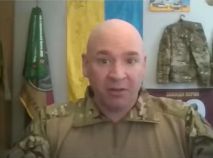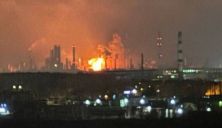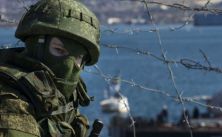The United Nations has published a new report by Secretary-General Antonio Guterres on human rights violations in the occupied Crimea. It covers the period from July 1, 2020 to June 30, 2021 and describes a wide range of human rights violations, including the situation with Ukrainian and Crimean Tatar languages on the peninsula.
How much the study of these languages in Crimean schools has decreased and why the Kremlin seeks to eradicate them – told Yevhen Yaroshenko, analyst of the organization “CrimeaSOS” in the program “5 questions”, reports UA.
Oleh Borisov hosts the program.
– De jure, Russian, Ukrainian and Crimean Tatar languages exist in Crimea. De facto, all but the Russian language are destroyed. Please tell, what data do you have on this case?
– The occupation administration formally introduced three official languages. However, in fact, only Russian is effectively implemented and used as a language of communication. As for the Ukrainian language, the statistics are very catastrophic. It can be said that it is on the verge of extinction, like a species that is listed in the Red Book.
Here is a simple figure. Before the occupation of the Autonomous Republic of Crimea, 12,694 schoolchildren studied in Ukrainian. In 2020-2021, the previous school year, this number was 214. That is, during the years of occupation, the number of students studying in the Ukrainian language decreased by 60 times.
In addition, if we talk about the Crimean Tatar language, the statistics there are not so sad. The number has decreased, but there is no such threat to the Crimean Tatar identity as to the Ukrainian. However, there are cases where the occupying “police” or “courts” ignore the right of indigenous people to use their language.
For example, we often hear about the Crimean Tatar political prisoners asking “court” speak their language, and then they are removed from the “court” hall.
Or they are refused to provide an interpreter. All this is not only a violation of their language rights, but also a violation of the right to a fair trial. Due to the fact that a person is not allowed to speak in his native language, he cannot defend himself effectively.
– Why do you think the Kremlin is destroying the Ukrainian and Crimean Tatar languages on the peninsula?
– I would even say that in relation to the Ukrainian and Crimean Tatar languages, the Kremlin has different goals. The Ukrainian language, like the Orthodox Church of Ukraine, is associated by the Kremlin, as they say, “with the Ukrainian period in the history of Crimea.”
That is, if we follow the Kremlin’s narratives, then for 23 years, when Ukraine ruled Crimea, they claim, there was an alleged “violent Ukrainization”. And the actions that are aimed at reducing the Ukrainian language, they call “the return of historical justice.” In addition, the entire Ukrainian identity, one way or another, is associated with the fact that those who express it, most likely, adhere to pro-Ukrainian views, stay for the de-occupation of Crimea.
Thus, in order to suppress such mood, a lot of administrative efforts are aimed at eradicating the Ukrainian church and language as much as possible.
There is only the “Ukrainian community of Crimea”, but it cooperates with the occupation administration. For example, they hold various events, but I would say that these activities are aimed only at maintaining the appearance that there is multilingualism in Crimea.
– Are such actions a direct violation of human rights?
– Of course, it violates the fundamental principles of human rights, it violates the rights of national minorities and the rights of indigenous peoples, if we talk about the Crimean Tatar language.
There are many documents that enshrine the right of everyone to receive education in their native language in one way or another, the opportunity to learn their language, demonstrate culture, religious rites, traditions, follow them with their like-minded people. However, what is written in the so-called “Crimean constitution” is not true.
– How can eradication of Ukrainian and Crimean Tatar languages be stopped?
– There are many mechanisms that can give hope for stopping these negative trends. The 5th report of the UN Secretary General on the human rights situation in the occupied Crimea was recently published. It will be presented at the next session of the UN General Assembly, and this indicates that the UN system is monitoring the situation in Crimea at the highest level. We see that this issue, in one way or another, is on the agenda. However, reports and resolutions are not enough, other actions are needed. It is necessary to monitor those who are directly involved in human rights violations in Crimea, in particular those who unjustifiably order the eradication of Ukrainian or Crimean Tatar languages from education, those who unjustifiably prevent Crimean schoolchildren from traveling to mainland Ukraine and entering Ukrainian universities. Sanctions can be effective in this case and affect the behavior of people who directly make such decisions.

